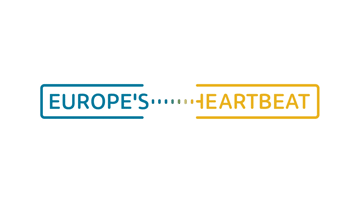Morpheus Logistik, based in Lüdenscheid, is one of the pioneers who have turned the vision of drones as flying suppliers into a tangible innovation. As the first company to receive EU approval for drone transportation, Morpheus is transforming the way goods are transported. Initially, they will transport industrial goods, such as spare parts for bridges. The drones can travel up to 250 kilometers and carry a maximum payload of ten kilograms. Since May, Morpheus's drones have been delivering medical samples and blood reserves up to 150 times a day between hospitals in Iserlohn, Schwerte, and Menden, and the sites of the laboratory analysis company Eurofins in Iserlohn and Gelsenkirchen. The compact drones are equipped with a special parachute for safe landings. This enables them to bypass traffic, save time, and reduce CO₂ emissions.
In an interview with NRW.Global Business, CEO Norman Koerschulte discusses the motivation behind the idea, the importance of NRW as an innovation hub, the prospects for drone logistics, and the company's future plans.
Mr. Koerschulte, what inspired you to found Morpheus Logistik, and how did the idea evolve from flying prototypes to an approved solution?
At Morpheus Logistik, our vision is to build Europe's leading drone airline and address fundamental economic issues: Logistics, transportation, and skills shortages. On a local level, we experienced a real supply problem in Lüdenscheid due to the closure of the A45 Rahmede viaduct – not just theoretically, but practically. Spare parts arrived too late, and delivery times could hardly be met. So we asked ourselves: Why not actually go into the air? The technology was available, but no one was making it usable. So, we took matters into our own hands. Given my background as a technical dealer, I knew what was important: reliability, speed, and low costs. Thanks to my previous job as Head of Material & Logistics at Germanwings (now Eurowings, editor's note), I already had the necessary aviation industry know-how. Today, we fly with official approval from the aviation authority. This is no longer a startup experiment but a real service for our customers and a lifesaver for society.
How did you come up with the idea to direct development towards medical samples, and how many drones do you use for this purpose?
We are much faster with drones than by road. This is particularly important in emergency medicine. Our partner Eurofins GeLaMed, a medical laboratory for special analysis and diagnostics, had specific problems in this area that we were able to solve: Time pressure, traffic jams, and a lack of drivers. It quickly became clear that drones could make a real difference here. We now fly up to five Auriol drones between several clinics in NRW, transporting samples and blood reserves – up to 150 flights a day.
What measures do you take to guarantee the flight and cargo safety and to ensure that the drones are robust against unforeseen events such as weather or technical faults?
We are an officially certified aviation company. That comes with obligations. Each of our flight routes is approved by the authorities, and all of our drones are equipped with multi-stage emergency systems. Trained, certified drone pilots monitor our flights in real time from a central control center. In other words, automated flight is possible, but never without human control.
In addition, we continuously evaluate weather data and carry out comprehensive safety and system checks before every takeoff. We also have tried and tested emergency protocols for every conceivable scenario. Our systems are designed to be stable and fail-safe, even under adverse conditions such as strong gusts of wind or sudden system deviations.
What makes NRW a particularly suitable location for a visionary logistics company like yours?
We are from Lüdenscheid in the Sauerland region, and we are familiar with the area. There are many industrial centers and hospitals here, as well as short distances. However, there are also infrastructural challenges that we can and want to address with our solution. This was the perfect place for us to start. And we can see that local politicians, authorities, and companies are open to new solutions when they are implemented correctly. Here, you can demonstrate that innovation works, especially in SMEs.
To what extent can (your) drones reshape logistics in NRW, Germany or internationally? Or to put it another way: how do you envision the logistics of tomorrow?
I believe in practical solutions. This means that while the logistics of tomorrow won't be completely automated, they will be smarter and more flexible. Drones are one of the building blocks we want to shape. When used correctly, they can solve real problems. They can shorten delivery times, avoid downtime, mitigate staff shortages, and much more. Our goal is clear: We want to become Europe's leading drone airline, not just because it sounds cool, but because it's necessary.


